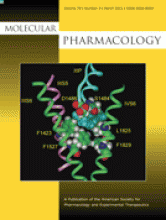Abstract
High cyclooxygenase 2 (COX-2) expression has been reported to be clinically associated with reduced cisplatin-based therapy efficacy in esophageal cancer. However, the benefit of including COX-2-selective inhibitors in therapeutic regimens remains uncertain. Thus, we sought to determine the effects of COX inhibitors on the cytotoxicity of cisplatin and to further explore the mechanism involved in human esophageal squamous cell carcinoma cells. Among the four tested COX inhibitors [celecoxib, 4-[5-(4-chlorophenyl)-3-(trifluoromethyl)-1H-pyrazol-1-yl]benzenesulfonamide (SC-236), nimesulide, and indomethacin], all of which substantially suppressed prostaglandin E2 production to a similar extent; only the COX-2-selective inhibitors celecoxib and SC-236 antagonized cisplatin-induced cytotoxicity and apoptosis in both cisplatin-resistant cells and their wild-type counterparts. Knockdown of COX-2 by small interference RNA failed to mimic the antagonizing effects of celecoxib and SC-236, implying that their action is COX-2-independent. Further mechanistic analysis revealed that the antagonizing effect of celecoxib and SC-236 on cytotoxic action of cisplatin was associated with decreased whole-cell cisplatin accumulation and DNA platination. Reduced influx, accompanied by the reduction of protein level of copper transporter 1, accounts for decreased intracellular cisplatin accumulation. In addition, combined treatment did not elicit greater antitumor activity than cisplatin or celecoxib monotherapy in vivo in an esophageal cancer xenograft model. Collectively, these data demonstrate that celecoxib antagonizes the cytotoxicity of cisplatin by decreasing intracellular cisplatin and DNA platination. The combination treatment also shows no beneficial effect compared with cisplatin or celecoxib monotherapy in vivo. Therefore, current clinical trials with celecoxib in combination with cisplatin should be approached with caution.
Footnotes
This work was supported by the Program for Changjiang Scholars and Innovative Research Team in University (PCSIRT) awarded by the Department of Education of China [Grant IRT0731]; and The National Natural Science Foundation of China [Grant 81001456].
Article, publication date, and citation information can be found at http://molpharm.aspetjournals.org.
doi:10.1124/mol.110.069393.
-
ABBREVIATIONS:
- COX-2
- cyclooxygenase 2
- NSAID
- nonsteroidal anti-inflammatory drug
- SC-236
- 4-[5-(4-chlorophenyl)-3-(trifluoromethyl)-1H-pyrazol-1-yl]benzenesulfonamide
- MS
- mass spectrometry
- siRNA
- small interference RNA
- ELISA
- enzyme-linked immunosorbent assay
- PGE2
- prostaglandin E2
- PBS
- phosphate-buffered saline
- ICP
- inductively coupled plasma
- TUNEL
- terminal deoxynucleotidyl transferase dUTP nick-end labeling
- PARP
- poly(ADP-ribose) polymerase
- CTR1
- copper transporter 1.
- Received October 13, 2010.
- Accepted December 21, 2010.
- Copyright © 2011 The American Society for Pharmacology and Experimental Therapeutics
MolPharm articles become freely available 12 months after publication, and remain freely available for 5 years.Non-open access articles that fall outside this five year window are available only to institutional subscribers and current ASPET members, or through the article purchase feature at the bottom of the page.
|






